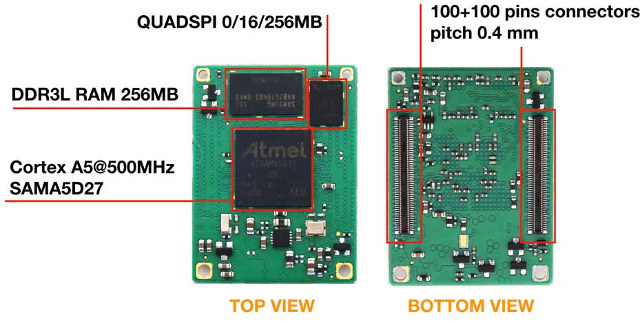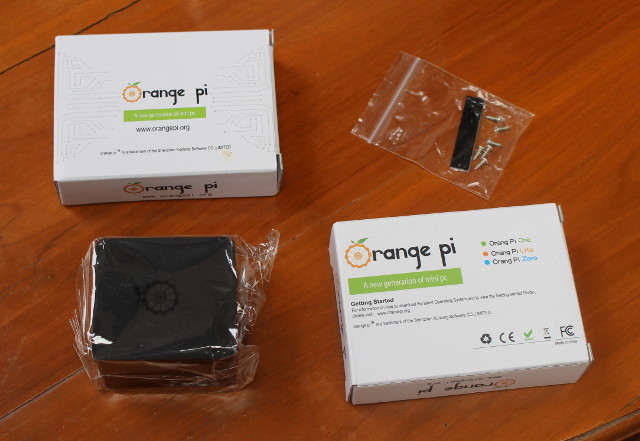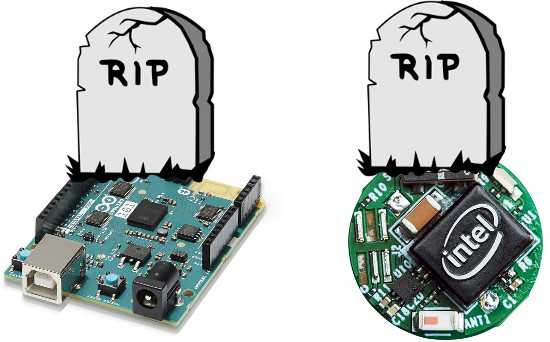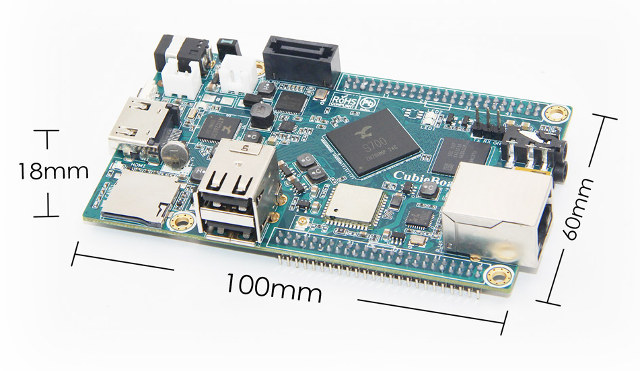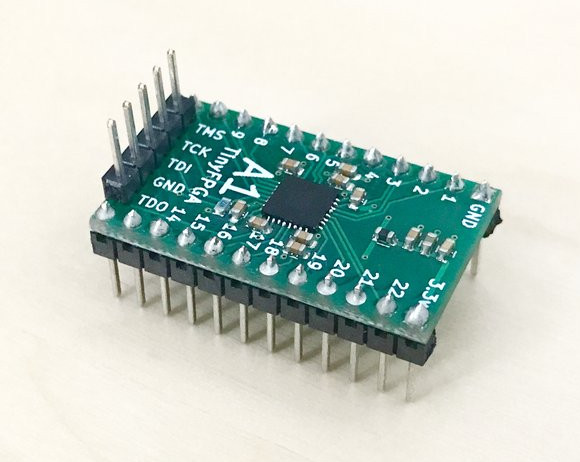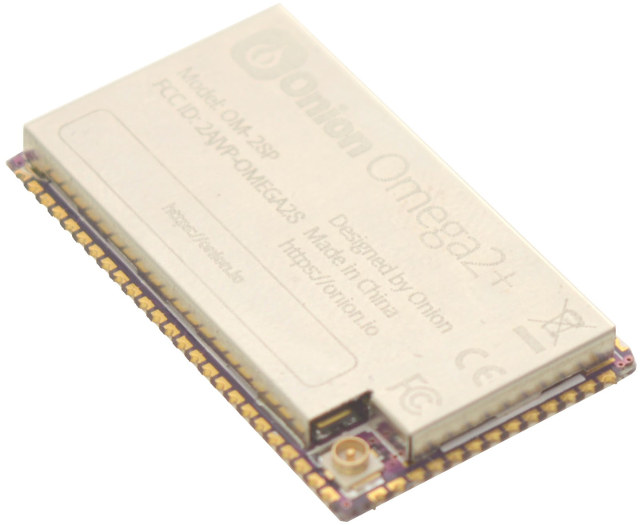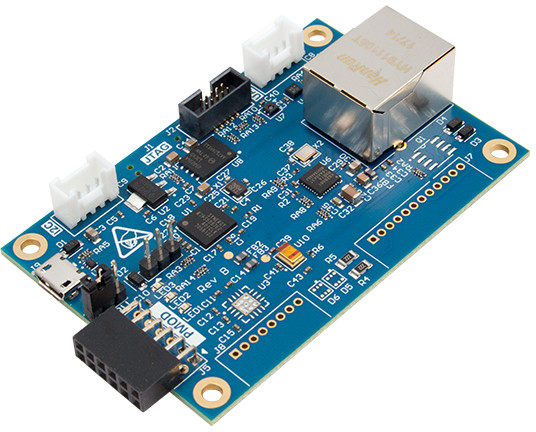Acme Systems has been designing compact and relatively inexpensive systems-on-module based on Atmel (now Microchip) processor such as their Aria G25 or Arietta G25 modules. The company has now launched RoadRunner system-on-module (SoM) powered by Microchip SAMA5D21 Cortex A5 processor, as well as the corresponding Berta D2 development kit to get started with the SoM. RoadRunner (D2) SoM specifications: SoC – Microchip SAMA5D27 ARM Cortex A5 processor @ 500MHz System Memory – 256 MB DDR3L RAM Storage – 16 MByte QSPI flash memory (optionally none, 128 MB or 256 MB) Board to Board Connectors – 2x 100-pin connectors pitch 0.4 mm with all the CPU signals Power Supply – 3.3V DC Dimensions – 40 x 30 x 3.5mm Weight- 5g Temperature Range – -40° to +85°C RoHS compliant The module is said to be “fully supported inside the Linux Kernel main stream” with “all the kernel drivers are fully open […]
How to Setup an Orange Pi Zero DIY Smart Speaker with Google Assistant SDK
A preview release of Google Assistant SDK working with Raspberry Pi 3 and other ARMv7 boards was released in May, and soon after, AIY Projects Voice Kit was offered for free with Raspberry Pi Magazine in order to a complete smart speaker kit working with RPi 3. I wanted to try it on one of FriendlyELEC or Shenzhen Xunlong Allwinner board, since all we need is audio input and output, and an Internet connection. Earlier this month, I came across Orange Pi Zero Set 6 Kit that had all I needed: Orange Pi Zero ARM Linux board, an expansion board with built-in microphone and audio output jack, and a cute and small case to neatly put everything together. Orange Pi Zero Set 6 Kit Unboxing and Assembly Shenzhen Xunlong sent me the kit so that I can try it out. The package includes two Orange Pi packages, the plastic case, […]
Hologram LTE Software-Defined Global Network for Cellular IoT Projects Starts at $0.40 per Month per Device
Cellular connectivity can be rather expensive, and in the IoT realms, new LTE standards are still evolving and you may want to manage your own mini cellular network, so ideally we would need a provider that offers both low cost and flexibility. Hologram LTE network does both as it’s a software-defined network, and pricing starts at $5 for the SIM card and $0.40 per month per device. The company also just announced that their network was available for global deployment with the service available in more than 170 countries via partnerships through over 200 cellular carriers. The SIM card supports automatic roaming and carrier switching, and spacebridge inbound tunnel access allows for secure remote programming and device management. The SIM card specifications are as follows: 2G/GPRS, 3G HSPDA, 4G LTE Read/Write Cycles: Min. 500,000 Operating Temperature: -25°C ~ 85°C Data Retention: Min. 25 years at 25°C Triple-cut for Mini, Micro, […]
Intel Curie Module, Arduino 101 Board Are Being Discontinued (Too)
Intel seems to have completely given up on its efforts to bring products specific to the Internet of Things. After discontinuing Intel Edison, Galileo and Joule boards & modules last month, forcing companies to look for alternatives, the company has now issued product discontinuance / end-of-life notices for Intel Curie Module and Arduino 101 board, itself based on the Curie module. The two product change notification notice can be found below for: Select Intel Curie Module Products – PDF Select Intel Arduino 101 Products – PDF The use of the word “Select” would normally mean some versions of the module and board won’t be affected, but I fail to see which ones here, as AFAIK there’s only one Arduino 101 board, and two variants of Curie modules, all three to be discontinued. Arduino 101 will be phased out faster with the following milestones: July 17, 2017 – Product Discontinuance Program […]
Cubieboard7 Board Powered by Actions Semi S700 Processor Becomes a Full-Featured Devkit with DVK522 Expansion Board
Cubieboard6 was announced earlier this year with the same form factor as Cubieboard2 – which was popular a few years ago – by replacing Allwinner A20 with Actions Semi S500 quad core ARM Cortex A9 processor. CubieTech is about to launch Cubieboard7 based on the same design, except for the processor upgrade to the pin-to-pin compatible Actions Semi S700 quad core ARM Cortex A53 processor. I’ve also found out Cubieboard2/6/7 can be connected to DVK522 expansion board to provide easier access more I/Os like LVDS, RGB LCD, VGA, and so on. Let’s start with the Cubieboard7 (CB7) preliminary specifications: SoC – Actions Semi S700 quad core ARM Cortex-A53 processor with Mali-450MP4 GPU System Memory – 2GB LPDDR3 Storage 8GB eMMC flash SATA 3.0 port for 2.5″ HDD/SSD implemented via USB 3.0 switch and JMicron JMS578 USB 3.0 to SATA controller. micro SD card slot up to 32GB Video Output – […]
TinyFPGA is a Breakout Board for Lattice Semi MachXO2 FPGA
We’ve covered several low cost FPGA boards over the years, but if you want a platform with the bare minimum, you may be interested in tinyFPGA breakout board based on Lattice Semi MachXO2 FPGA board that comes with two flavors: A1 with MachXO2-256, and A2 with the more powerful MachXO2-1200 FPGA. TinyFPGA board specifications: FPGA A1 board – Lattice MachXO2-256 with 256 LUTs, 2 kbits distributed RAM A2 board – Lattice MachXO2-1200 with 1280 LUTs, 10 kbits distributed RAM, 64 kbits EBR SRAM, 64 kbits flash memory, and a PLL (See datasheet for MachXO2 family) Built-in flash configuration memory programmable via JTAG I/Os 18 user IOs (21 with JTAGEN) 1x SPI Hard-IP 2x I2C Hard-IPs A2 board only – 1x PLL Hard-IP Power Supply – 3.3V Dimensions – ~3.05 x 1.8 cm You’ll need a JTAG programmer for Lattice FPGA as well as Lattice Diamond software – available for Windows […]
Onion Omega2S and Omega2S+ Linux WiFi Modules Launched for OEMs
Onion Omega2 and Omega2+ are tiny WiFi IoT development boards powered by Mediatek MT7688 MIPS processor running LEDE – OpenWrt fork – that sold for just $5 and up in Kickstarter, but are now selling for $7.50 and $9 respectively. The board also support various add-on boards, and a great for evaluation and various projects. But they may not be ideal for people who want to integrate the technology into their products, and that’s why the company have just launched Omega2S and Omega2S+ with about the same specifications, but in a package more suitable to be integrated into products for mass production. Onion Omega2S/2S+ specifications: WiSoC – Mediatek MT7688 MIPS processor @ 580 MHz System Memory / Storage Omega2S – 64MB DDR2 / 16MB flash Omega2S+ – 128MB DDR2 / 32 MB flash Connectivity – 802.11 b/g/n WiFi with u.FL antenna connector Baseboard Interface – Half holes (aka castellated holes) […]
Renesas S5D9 IoT Fast Prototyping Board Combines Cortex M4F MCU, Sensors, and Ethernet
Renesas S5D9 IoT Fast Prototyping board is a board designed – as its name implies – for the Internet of Things, with the company’s Synergy S5D9 ARM Cortex-M4F micro-controller, various sensors, various I/Os including protected digital inputs and outputs, and Ethernet for network connectivity instead of a Bluetooth or/and WiFi module. Renesas S5D9 board specifications: MCU – Renesas Synergy S5D9 ARM Cortex M4F MCU @120MHz with 2MB flash and 640KB SDRAM Storage – 256Mbits (32MB) QSPI NOR flash Connectivity – 1x 10/100Mbps Ethernet (RJ45) USB – 1x micro USB Full Speed port Sensors Bosch BMC150 6-Axis sensor (digital compass) AMS ENS210 environmental sensor for temperature and humidity data TE Connectivity MS5637-02BA03 barometric pressure sensor Knowles SPU0414HR5H-SB amplified SiSonic microphone Expansion 1x PMOD connector (SPI) 2x Grove Connectors (UART, I2C, GPIO) 2x Protected Digital Input (5.1V to 24V) + 2x Buffered Digital Output (up to 1A) via Molex 12 position header […]


